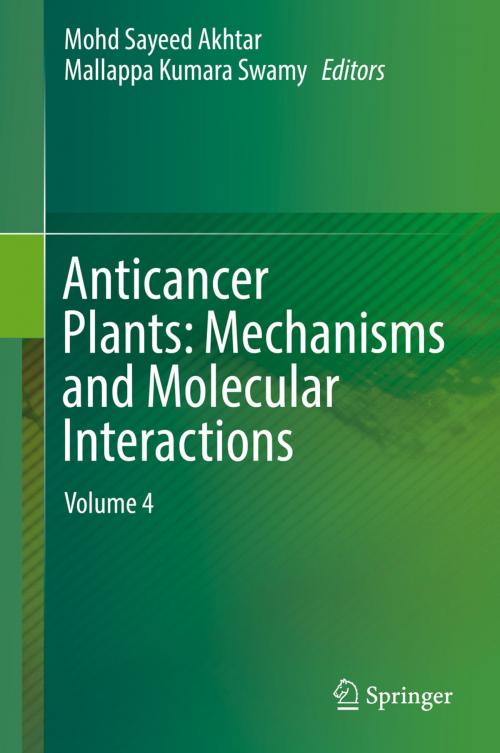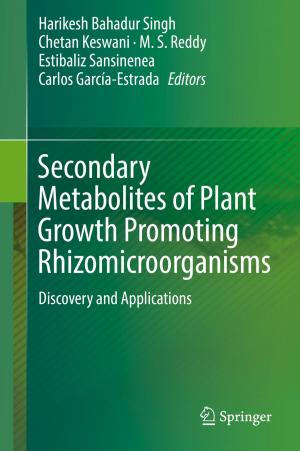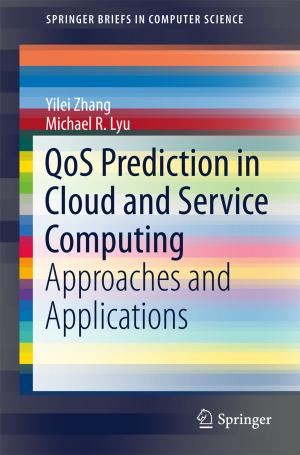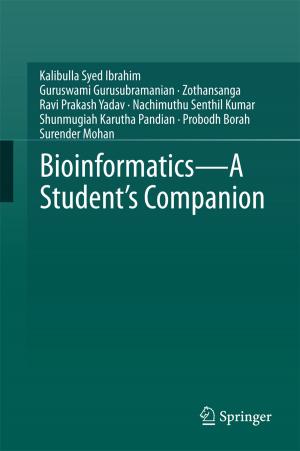Anticancer Plants: Mechanisms and Molecular Interactions
Volume 4
Nonfiction, Science & Nature, Science, Biological Sciences, Biochemistry, Botany| Author: | ISBN: | 9789811084171 | |
| Publisher: | Springer Singapore | Publication: | July 3, 2018 |
| Imprint: | Springer | Language: | English |
| Author: | |
| ISBN: | 9789811084171 |
| Publisher: | Springer Singapore |
| Publication: | July 3, 2018 |
| Imprint: | Springer |
| Language: | English |
This book summarizes the application of plant derived anticancer compounds as chemopreventives to treat several cancer types, focusing on the molecular mechanisms of action of phytocompounds and providing an overview of the basic processes at the cellular and molecular level that are involved in the progression of the cancer and can be employed in targeted preventive therapies. In addition, it highlights the development of novel anticancer drugs from plant sources using bioinformatics approaches. The compiled chapter data aids readers understanding of issues related to bioavailability, toxic effects and mechanisms of action of phytocompounds, and helps them identify the leads and utilize them against various cancer types effectively. Furthermore, it promotes the use of bioinformatics tools in medicinal plants to expedite their use in plant breeding programs to develop molecular markers to distinguish disease subtypes and predicting mutation, which in turn improves cancer diagnosis and prognosis, and to develop new lead compounds computationally. The book provides scientific verifications of plant compounds mechanisms of action against various cancers and offers useful information for students, teachers, and healthcare professionals involved in drug discovery, and clinical and therapeutic research.** **
This book summarizes the application of plant derived anticancer compounds as chemopreventives to treat several cancer types, focusing on the molecular mechanisms of action of phytocompounds and providing an overview of the basic processes at the cellular and molecular level that are involved in the progression of the cancer and can be employed in targeted preventive therapies. In addition, it highlights the development of novel anticancer drugs from plant sources using bioinformatics approaches. The compiled chapter data aids readers understanding of issues related to bioavailability, toxic effects and mechanisms of action of phytocompounds, and helps them identify the leads and utilize them against various cancer types effectively. Furthermore, it promotes the use of bioinformatics tools in medicinal plants to expedite their use in plant breeding programs to develop molecular markers to distinguish disease subtypes and predicting mutation, which in turn improves cancer diagnosis and prognosis, and to develop new lead compounds computationally. The book provides scientific verifications of plant compounds mechanisms of action against various cancers and offers useful information for students, teachers, and healthcare professionals involved in drug discovery, and clinical and therapeutic research.** **















